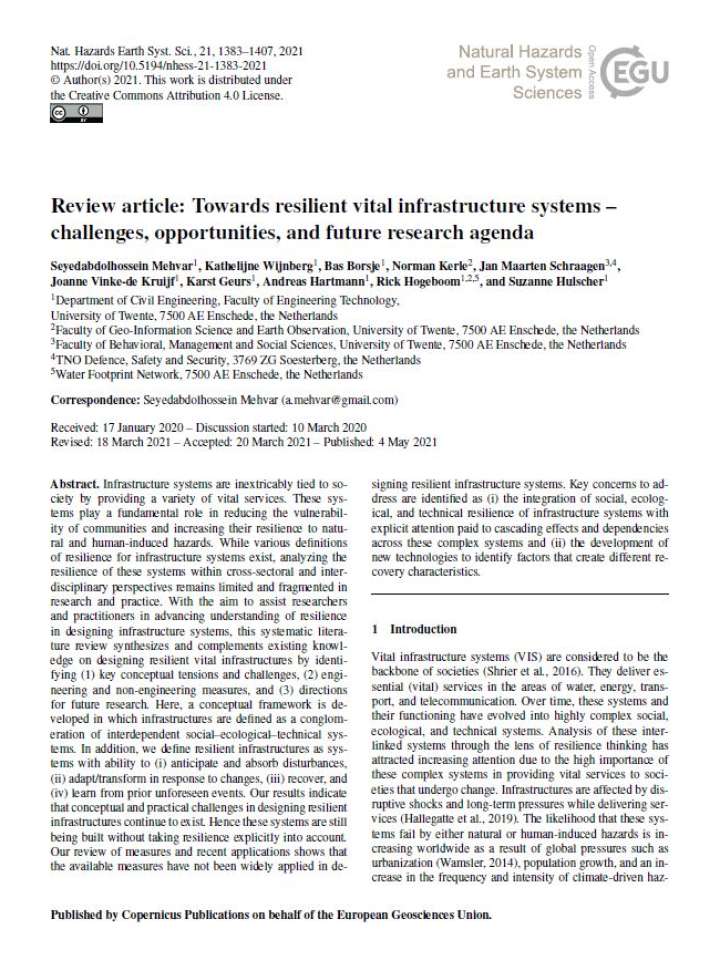Review article: Towards resilient vital infrastructure systems – challenges, opportunities, and future research agenda
With the aim to assist researchers and practitioners in advancing understanding of resilience in designing infrastructure systems, this systematic literature review synthesizes and complements existing knowledge on designing resilient vital infrastructures by identifying (1) key conceptual tensions and challenges, (2) engineering and non engineering measures, and (3) directions for future research. Here, a conceptual framework is developed in which infrastructures are defined as a conglomeration of interdependent social–ecological–technical systems. In addition, the authors define resilient infrastructures as systems with ability to (i) anticipate and absorb disturbances, (ii) adapt/transform in response to changes, (iii) recover, and (iv) learn from prior unforeseen events.
The results indicate that conceptual and practical challenges in designing resilient infrastructures continue to exist. Hence these systems are still being built without taking resilience explicitly into account. This review of measures and recent applications shows that the available measures have not been widely applied in designing resilient infrastructure systems. Key concerns to address are identified as (i) the integration of social, ecological, and technical resilience of infrastructure systems with explicit attention paid to cascading effects and dependencies across these complex systems and (ii) the development of new technologies to identify factors that create different recovery characteristics.
Explore further
